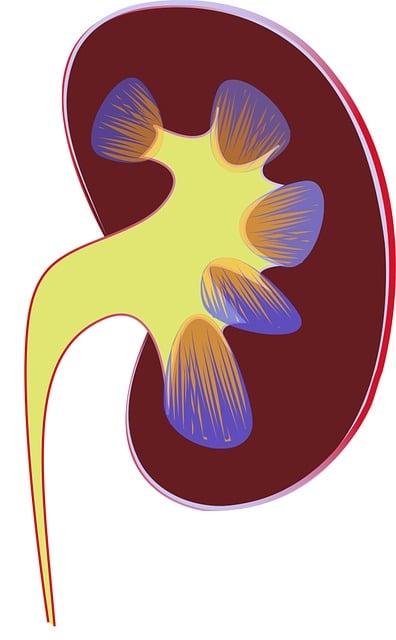
Chronic kidney disease (CKD) is a condition that affects the function of the kidneys over time. The kidneys are vital organs responsible for filtering waste and excess fluids from the blood, which are then excreted through urine. When the kidneys are not functioning properly, waste and fluids build up in the body, leading to various symptoms and complications.
It is important to recognize the symptoms of CKD early on, as the condition can progress and lead to kidney failure if left untreated. In this article, we will explore the common symptoms of chronic kidney disease and how they can manifest in individuals.
1. Fatigue
One of the most common symptoms of chronic kidney disease is fatigue. Individuals with CKD may experience persistent tiredness and lack of energy, regardless of how much they rest or sleep. This is due to the build-up of waste products in the body, which can cause anemia and decrease the production of red blood cells, leading to fatigue.
Fatigue can have a significant impact on daily activities and quality of life. It is important for individuals experiencing unexplained fatigue to seek medical attention and get tested for CKD.
2. Swelling
Swelling, also known as edema, is another common symptom of chronic kidney disease. The kidneys play a crucial role in regulating the body’s fluid balance. When they are not functioning properly, excess fluid can build up in the body, leading to swelling in the hands, feet, and around the eyes.
Swelling may also be accompanied by weight gain, especially in the legs and ankles. It is important to monitor and report any unexplained swelling to a healthcare professional, as it could be a sign of kidney dysfunction.
3. Urination Changes
Changes in urination patterns can be indicative of chronic kidney disease. Individuals with CKD may experience increased or decreased urination, foamy urine, blood in the urine, and difficulty urinating. These changes can be a result of the kidneys’ inability to properly filter waste and regulate fluid balance.
It is important to pay attention to any changes in urination and report them to a healthcare provider for further evaluation and testing for CKD.
4. High Blood Pressure
High blood pressure, also known as hypertension, is a common symptom and complication of chronic kidney disease. The kidneys play a crucial role in regulating blood pressure by managing the body’s fluid volume and producing hormones that help control blood pressure.
When the kidneys are not functioning properly, blood pressure can rise, leading to further damage to the kidneys and other organs. It is important to monitor blood pressure regularly and seek medical attention if it is consistently high, as it could be a sign of underlying kidney disease.
5. Nausea and Vomiting
Nausea and vomiting can be symptoms of chronic kidney disease, especially in later stages when waste products accumulate in the body. The build-up of urea and other toxins can cause gastrointestinal disturbances, leading to persistent nausea and vomiting.
Individuals experiencing unexplained nausea and vomiting should consult a healthcare provider for proper evaluation and management of kidney function.
6. Itchy Skin
Chronic kidney disease can also manifest as itchy skin, a condition known as pruritus. Itchy skin is often a result of the build-up of waste products in the blood, which can cause irritation and inflammation of the skin. Itchy skin is a common complaint among individuals with CKD and can significantly impact quality of life.
It is important to address itchy skin and seek medical attention for proper management and treatment of underlying kidney disease.
7. Shortness of Breath
Shortness of breath can be a symptom of chronic kidney disease, especially in advanced stages when fluid builds up in the lungs. This can lead to difficulty breathing and shortness of breath, even with minimal physical exertion.
Individuals experiencing unexplained shortness of breath should seek immediate medical attention, as it could be a sign of fluid overload and kidney dysfunction.
8. Muscle Cramps
Muscle cramps and spasms can be a common symptom of chronic kidney disease, especially in the legs. The build-up of waste products and electrolyte imbalances can cause muscle cramps and discomfort, which can be persistent and affect daily activities.
It is important to address muscle cramps with a healthcare provider and get tested for CKD if other symptoms are present.
9. Poor Appetite
Chronic kidney disease can also lead to a poor appetite and weight loss. The build-up of waste products in the body can cause gastrointestinal disturbances, leading to a decreased appetite and malnutrition.
Individuals with unexplained poor appetite and weight loss should seek medical attention and get tested for underlying kidney disease.
10. Cognitive Impairment
Cognitive impairment, such as difficulty concentrating and confusion, can be a symptom of chronic kidney disease, especially in advanced stages. The build-up of waste products in the blood can affect brain function and lead to cognitive disturbances.
It is important to address any cognitive impairments with a healthcare provider and undergo proper evaluation for kidney function and CKD.


















